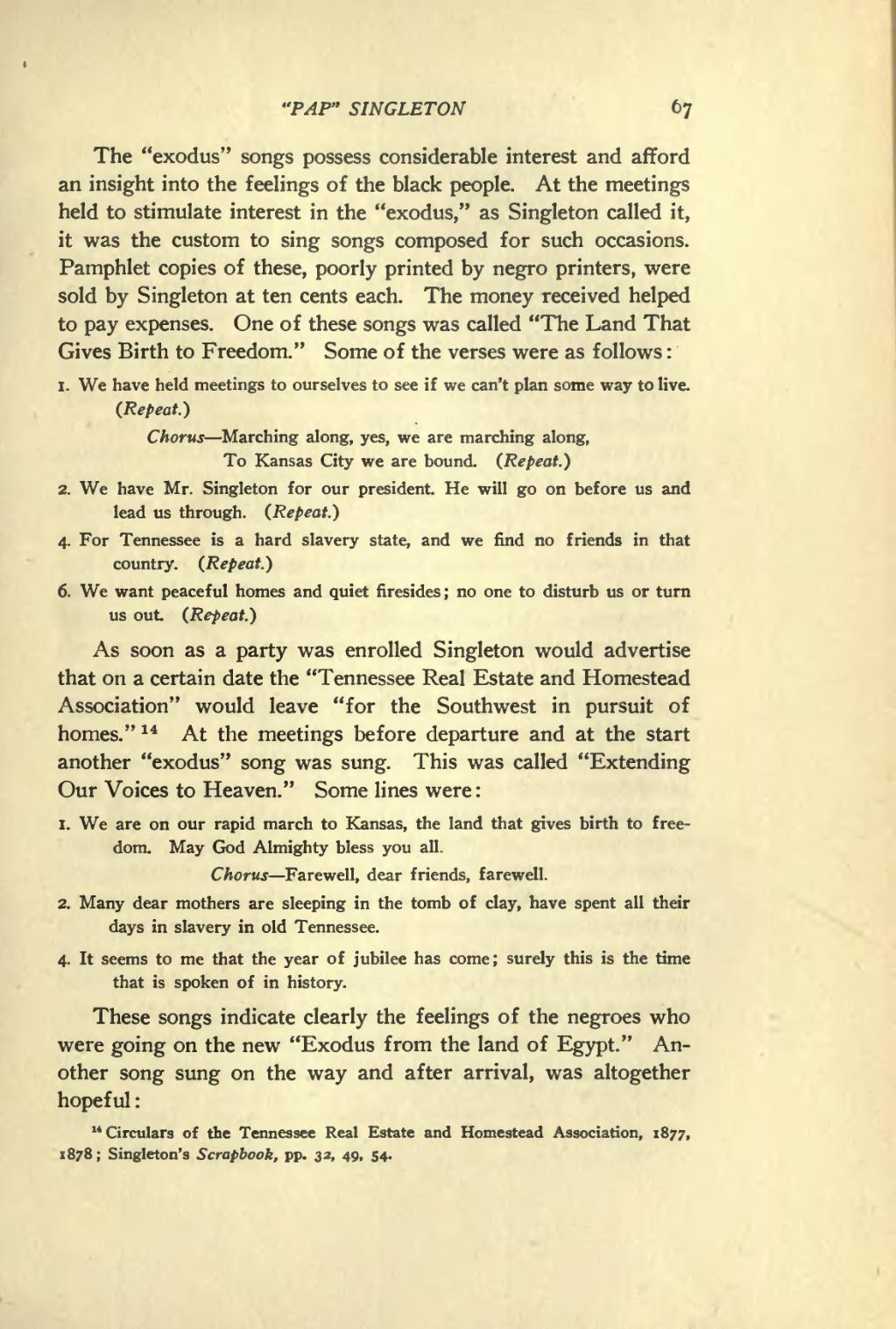"PAP" SINGLETON 67
The "exodus" songs possess considerable interest and aflford an insight into the feelings of the black people. At the meetings held to stimulate interest in the "exodus," as Singleton called it, it was the custom to sing songs composed for such occasions. Pamphlet copies of these, poorly printed by negro printers, were sold by Singleton at ten cents each. The money received helped to pay expenses. One of these songs was called "The Land That Gives Birth to Freedom." Some of the verses were as follows :
1. We have held meetings to ourselves to see if we can't plan some way to live.
{Repeat.)
Chorus — Marching along, yes, we are marching along, To Kansas City we are bound. {Repeat.)
2. We have Mr. Singleton for our president. He will go on before us and
lead us through. {Repeat.) 4. For Tennessee is a hard slavery state, and we find no friends in that country. {Repeat.)
6. We want peaceful homes and quiet firesides; no one to disturb us or turn us out. {Repeat.)
As soon as a party was enrolled Singleton would advertise that on a certain date the "Tennessee Real Estate and Homestead Association" would leave "for the Southwest in pursuit of homes." ^* At the meetings before departure and at the start another "exodus" song was sung. This was called "Extending Our Voices to Heaven." Some lines were :
1. We are on our rapid march to Kansas, the land that gives birth to free-
dom. May God Almighty bless you all.
Chorus — Farewell, dear friends, farewell.
2. Many dear mothers are sleeping in the tomb of clay, have spent all their
days in slavery in old Tennessee.
4. It seems to me that the year of jubilee has come; surely this is the time that is spoken of in history.
These songs indicate clearly the feelings of the negroes who were going on the new "Exodus from the land of Egypt." An- other song sung on the way and after arrival, was altogether hopeful :
" Circulars of the Tennessee Real Estate and Homestead Association, 1877, 1878 ; Singleton's Scrapbook, pp. z^, 49. 54-
